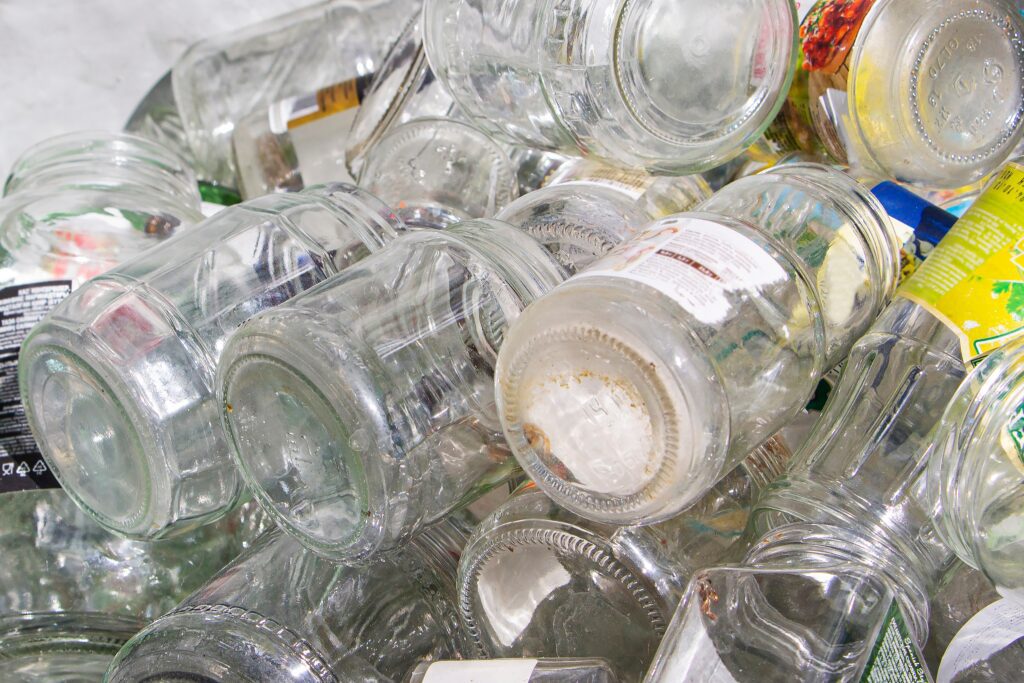A good deal of commercial food waste is packed in glass. So at Swancote, not only have we created a state of the art anaerobic digestion plant for converting the food waste into clean energy, but we have also invested in the machinery and expertise necessary for separating, sorting and recycling the glass it comes in.
Why is it important to recycle glass waste?
Glass can be recycled again and again without any loss of quality, and when new glass is made from old, the process has less environmental impact than starting again from scratch. Far from being a waste product, used glass is actually a valuable resource. So if waste glass goes to landfill, there is a significant environmental as well financial cost involved.
Which means food businesses who arrange for their glass waste to be recycled, will save money and add to their environmental credentials.
Can more glass waste be recycled?
The UK recycles about 75% of used waste glass each year. The remaining 25% goes to landfill where it will sit for about a million years before it degrades.
The UK has the capacity to recycle all of its glass waste, but in the food sector the challenge is to separate it from the food waste it contains, then to sort it into different glass types and of course to handle it safely.
These are challenges that Swancote has worked hard to overcome, so that we can now count ourselves as one of the very few UK food waste management companies who will receive food waste packed in glass and recycle it fully. We are working hard to ensure that at least in the food sector, all glass waste that can be recycled, will be recycled… with nothing sent to landfill.
If you are interested in working with Swancote Energy to achieve the most environmentally friendly solution for your food waste disposal requirements, with or without glass, please get in touch on 01746 716400 or enquiries@swancoteenergy.com or by filling out an enquiry form on our website.
